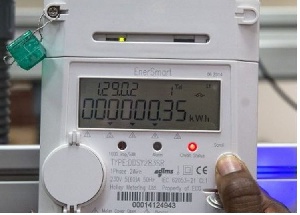The imposition of a 15 percent Value Added Tax (VAT) on electricity consumption will increase the cost of doing business and ultimately the cost of living, some residents of Teme have noted.
The Ministry of Finance, in line with Sections 35 and 37, and the First Schedule (9) of the Value Added Tax (VAT) Act, 2013 (ACT 870), announced that the implementation of the 15 percent VAT for residential customers of electricity commenced on January 1, 2024.
Responding to the announcement, some residents in Tema told the Ghana News Agency that the VAT implementation would only add to the already high cost of living as they would spend more on purchasing the same units of power.
Madam Vida Mensah, a trader at the Community One Market, said even though it would affect her pocket, the Government had already enacted the law and implementing it, and that she had no choice but to comply.
Electricity, she said, was an essential commodity, which people could not do away with, however “the good side is that it can force the public to conserve energy and practice efficient power usage.”
Mr Nathaniel Narh, a phone technician, said the VAT charges would add extra costs and definitely affect businesses, especially energy-intensive businesses.
“Our spending is more than our income, and adding VAT on electricity will further strain our budget as we already have additional bills to cover, such as Water Bill,” he added.
Mr Emmanuel Amissah Bonsu, a resident, stated that paying VAT on electricity would put a burden on consumers, especially those with low incomes but did not fall within the lifeline bracket.
He said some people were already having financial difficulties due to the current economic challenges, therefore, charging VAT on electricity will exacerbate their woes.
The VAT, according to the Ministry of Finance, is to be charged on electricity above the maximum consumption level specified for block charges for lifeline units.
The Ministry called on the Electricity Company of Ghana and the Northern Electricity Distribution Company to liaise with the Ghana Revenue Authority to ensure its implementation as part of the Government’s Medium-Term Revenue Strategy.
General News of Saturday, 20 January 2024
Source: GNA

















